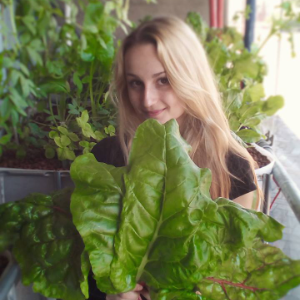Abstract:
Consuming plenty of fruits and vegetables (FV) is recognised as one of the most effective ways to protect against malnutrition and lower the risk of developing type 2 diabetes, cardiovascular disease and various cancers, the main causes of death worldwide. Average FV intakes in the UK are way below recommendations, limited by financial and physical access for many people. Household food production could improve access to FV, however, quantitative data on the FV intake of people in food-grower households and the level of produce self-sufficiency that can be achieved by household production have thus far been lacking. We studied FV production and consumption in 85 food-grower households in the UK, who kept a year-long record of their produce harvests, purchases, and losses. Median per capita FV intake in participant households was over 500 g per day, the equivalent of 6.3 ‘5-a-day’ portions. Participants also cultivated and consumed a large variety of FV (37.5 ±1.3 (S.E.) and 69.6 ±2.0 (S.E.) types, respectively). Median year-round self-sufficiency in fruits was 20.2%, in vegetables, 51.1%. Overall, own FV production typically accounted for about a half of participants’ daily FV requirements. These findings suggest that household FV production is associated with above-average FV intake and that it can provide access to substantial amounts of a wide variety of fresh produce. While more research is needed to understand causal relationships, promoting household food production and facilitating access to growing space could promote FV consumption and dietary diversity and improve public health.
Audience Take Away Notes:
- We propose household food production as a potential tool for improving access to fruits and vegetables that could promote fruit and vegetable consumption and improve public health by helping prevent malnutrition and noncommunicable disease.
- We invite other researchers to study the mechanisms by which household fruit and vegetable production can increase fruit and vegetable consumption and the socio-economic factors that need to be taken into consideration when devising effective public health interventions.
- We recommend policy makers consider implementing strategies to promote the practice of household fruit and vegetable production as a means of improving access to health-promoting foods.




